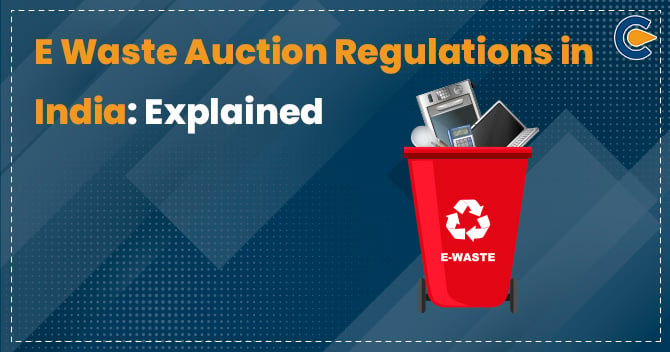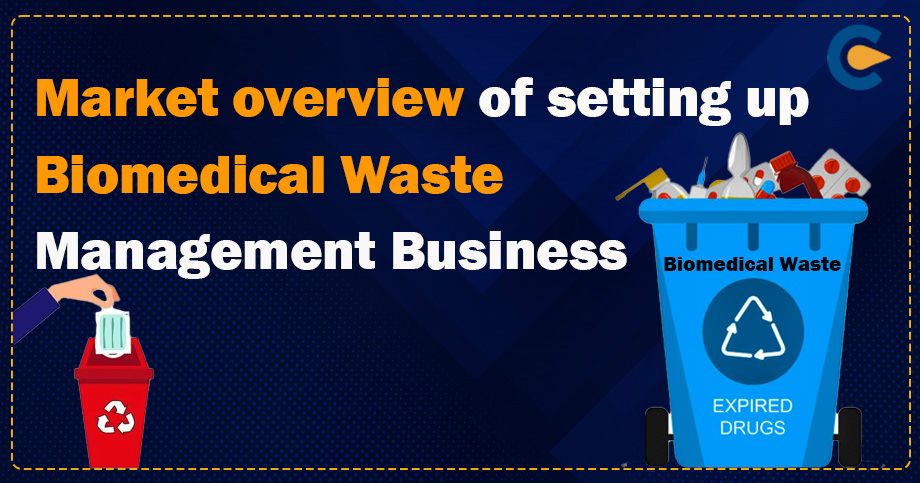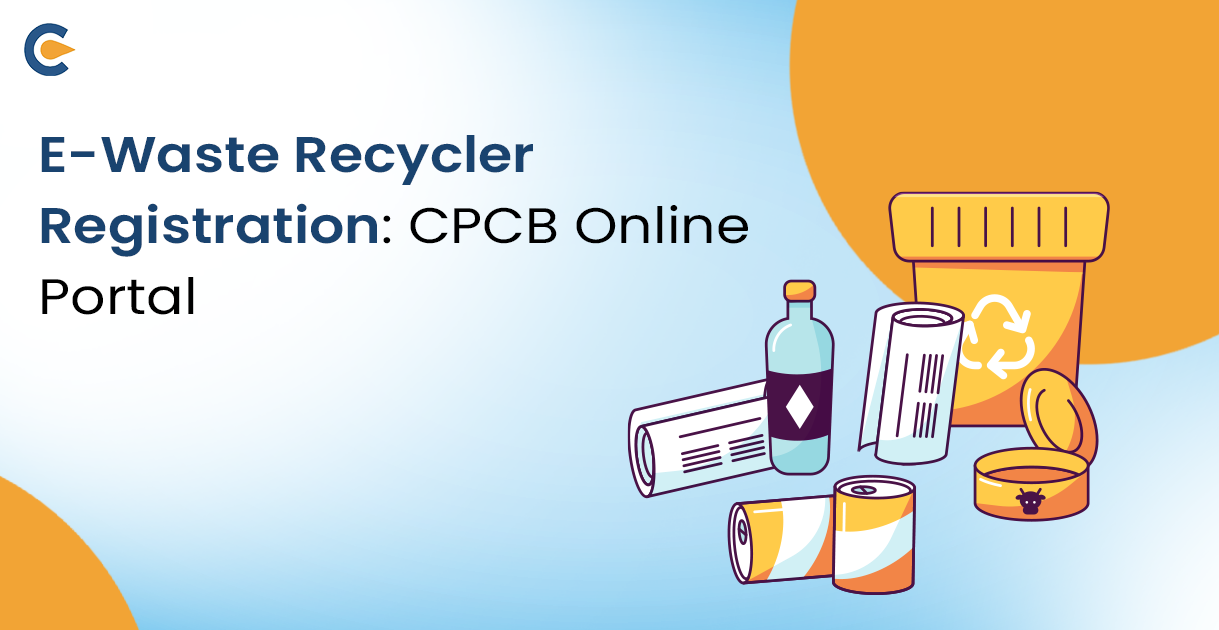The mounting amount of E-Waste in India that is increasing day by day becoming an issue that requires our immediate concerns for its proper management and recycling before it leads to irreversible damage to our environment and human health. Properly managing the E-Waste or end-of-life electrical products is becoming very important that only requires contribution from state authorities and government but also from the producers to fulfil their EPR responsibility.
Therefore for reducing E-Waste, E-Waste Auction Regulations in India plays a very important role in shipping the Waste to an authorized recycler, the Producer’s responsibility organization or the manufacturers for per management and disposal of E-Waste.
E-Waste Auction Regulation in India
The E-Waste Auction regulation in India is conducted by Central Pollution Control Board under the governance of the Ministry of Environment[1], Forests and Climate change for discarding the E-Waste and shifting the liability of properly managing the E-Waste to producers, authorized recyclers or Producers’ responsibility Organization. The auction is held on the “AS IS WHERE IS BASIS”, which entails that E-Waste auctioned will be sold in its present condition, no matter the condition it happens to be.
What is E-Waste?
In India, E-Waste (Management) Rules, 2016 specifies the meaning of E-Waste as Waste which is electrical and electronic equipment (EEE), whole or in part, discarded as Waste by consumers (individual or bulk) as well as rejects from manufacturing, refurbishment and repair processes. While under the International forum, E-Waste is defined as electrical or electronic equipment that is Waste, including all components, subassemblies and consumables that are part of the product at the time of discarding. But, to put it another way, E-Waste is the Waste generated by old and end-of-life electronic products, which can range in size from small phones to enormous televisions.
According to the latest estimates from the Central Pollution Control Board, India produced roughly 7.71 lakh tonnes in 2018-19, which jumped to 10.14 lakh tonnes in 2019-20. That’s a 31 per cent rise at the very least. These wastes are gathered from a number of sources, including but not limited to households, consumers, and bulk consumers, such as government offices, commercial institutions, manufacturers, and retailers.
Prerequisite conditions as E-Waste Auction Regulations in India
In India, the conditions to be fulfilled by Producers/ recyclers/ manufacturers are set by the Central Pollution Control Board under the guidance of the Ministry of Environment, Forests and climate change. These prerequisite conditions are:-
- The quality/description, along with proper inspection of the E-Waste, must be provided to the bidder to enable him to quote their rates.
- Offers containing conditional terms will not be entertained or accepted.
- The E-Waste put up for auction will be sold to the bidder quoting the highest amount for that particular item.
- Once the offer of the bidder is accepted, the E-Waste is at the risk of the buyer in every aspect.
- The bidder will pay the goods and services taxes at the time of the delivery.
- Earnest money deposit (EMD) for the successful bidder will be adjusted from the total payment.
- In case of an unsuccessful Bidder, Earnest’s Money Deposit will be paid to him within one month of the auction date.
- The winning bidder must remove all of the goods disposed of from the disposal location within three days to five days of receiving the balance payment. If the bidder fails to do so, the entire sum of the bid is forfeited.
- The person who the highest bidder authorizes is only permitted to live the E-Waste from the disposal location of the Central Pollution Control Board.
- Central Pollution Control Board sees fit to pull back any E-Waste item from the action by giving the reason for the withdrawal.
- The amount of item should be submitted by the highest bidder within three days, which if fails to pay the Earnest money deposited by him will be forfeited.
- If any dispute arises during and after the auction, both the parties have to abide by the final decision of the Chairman of the Central Pollution Control Board.
Bidding Procedure as per E-Waste Auction Regulations in India
- As per the regulations, the bidding happens under two systems one is a technical bid, and the other is a financial bid which is sealed by the participants separately in a single sealed envelope.
- EMD (Earnest money Deposit) for a specific amount must be present in the technical bids along with all the technical details and signature as prescribed by the authorities, whereas the commercial bid must contain the details of the bidder with EMD (Earnest Money Deposit) details and should be submitted in the sealed condition. For bidders like State or central PSU’s bidders like State or central PSA in the sealed condition. one is technical bid and the other is a financial bid, which is sealed by and Government of India Society as established under appropriate Act the requirement EMD (Earnest Money Deposit) is excused.
- The bid (technical and financial) are to be submitted separately online.
- The valid ID Proof (self-attested copy of Voter ID/ Aadhar Card/ Ration Card), recycler certificate verifies copy and copy of Demand draft is to be submitted in the technical bid which is to be uploaded on E-Portal.
- Then before the due date of the proposal of the bid, the demand draft is to be drooped near the reception of CPCB in the tender box.
- Then only to technically qualify forms/producers/recyclers, the financial bid will open.
- Under the E-Waste Management rule, the only authorized recyclers, Producers Responsibility Organisation, Extended Producers Responsibility authorized producers and dismantlers are permitted to partake in the auction for discarding of E-Waste.
Documents to be submitted along with the bid
The document to be submitted by the bidders are:-
- Copy of PAN Card
- Address Proof such as Voter ID/ Aadhar Card/ Ration Card
- Copy of registration and authorization for disposal of e-waste issued by the Pollution Control Board or Pollution Control Committee.
- Details of Bank Account
- EMD (Earnest Money Deposited)
Benefits of E-Waste Auction to the buyer
- The middle man will be the removal
- Transaction costs will be lower
- Transparency increased
- Optimal price setting
- The administrative cost will be lower
- Revenues will be increased
Conclusion
Recently it was estimated that Union health Minister had auctioned waste worth of Rs. 13 lakh as the initiative of “Swachh Bharat”, providing yet another example of the importance of bidding as per E-Waste Auction regulations in India for proper management of the Waste and delegating responsibility to the experts and authorized plants.
Read our Article:How to open e-waste business in Delhi











